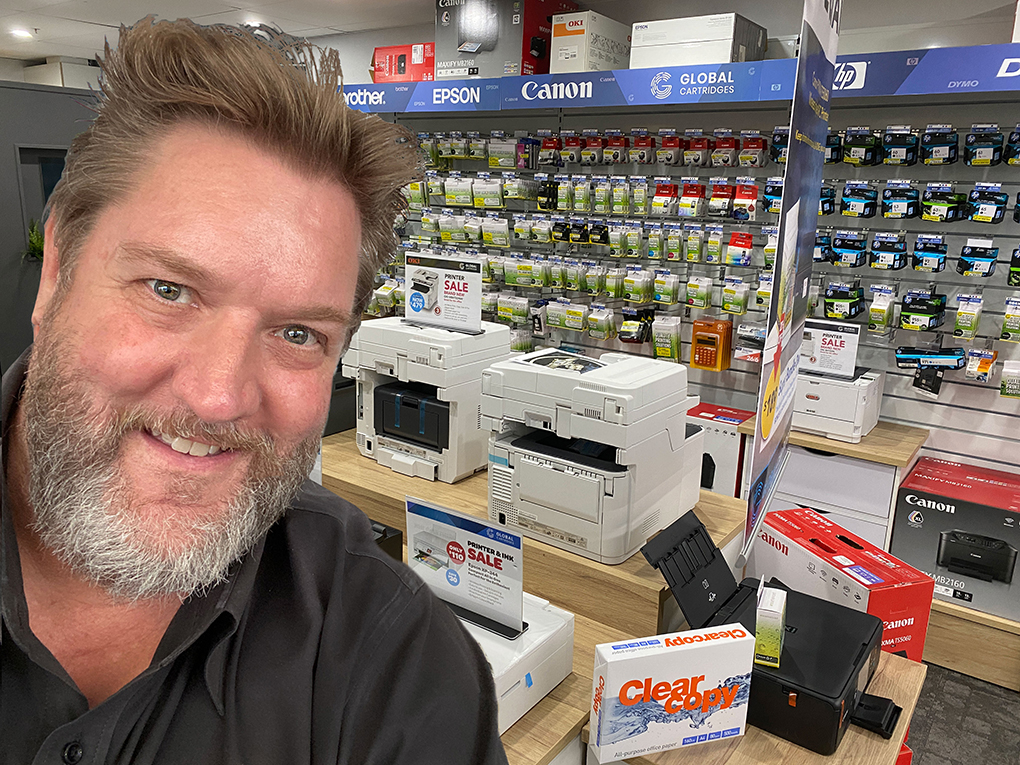Pivotal Patent Case has Support on Both Sides
Pivotal Patent Case has Support on Both Sides
 As I write (in March, 2017), the U.S. Supreme Court hearing is underway. It will have major repercussions for the cartridge industry. Heading into the hearing, the industries, organizations and corporations, who filed briefs as interested friends of the court, have split fairly evenly on their positions on the issues.
As I write (in March, 2017), the U.S. Supreme Court hearing is underway. It will have major repercussions for the cartridge industry. Heading into the hearing, the industries, organizations and corporations, who filed briefs as interested friends of the court, have split fairly evenly on their positions on the issues.
The case is International v. Impression Products. The OEMs, Imaging Supplies Coalition and friends of strong patent rights favored Lexmark’s position. The International Imaging Technology Council, electronics’ associations, dealers, retailers and even the association for professors of intellectual property and antitrust sided with Impression Products.
THE GOVERNMENT, AND ALL AFTERMARKET SUPPORTERS, SEE THIS AS AN IDEAL OPPORTUNITY TO AFFIRM THE DEFINITIVE NATURE OF THE FIRST SALE DOCTRINE.
The Solicitor General, representing the U.S. government, filed the most intriguing brief, which fully supports the aftermarket position on the first issue. However, it suggests a “middle of the road” position on the second issue.
The audience appears highly receptive. The Supreme Court has routinely been overturning patent holders’ positions supported by the Federal Circuit Court of Appeals, who decided in favor of Lexmark earlier this year.
They did so unanimously in the Quanta case, which addressed the first sale doctrine also. In 2008, the Supreme Court ruling in Quanta Computers held that the first sale exhausts all domestic patent holders’ rights. That case, however, doesn’t address items first sold overseas.
So what are the two issues? And the position of the government?
Issue One: The “conditional sale” exception to the first sale doctrine.
Whether a U.S. patent owner may invoke patent law to enforce restrictions on the use or resale of a patented article after the first authorized sale of the article in the United States.
Lexmark argued that its patents were infringed when remanufacturers sold remanufactured Lexmark cartridges that were originally marketed for a single-use under its return and recycle program, also known as the “prebate” program. Lexmark argues that it should be allowed to condition the sale of its cartridges, even though the first-sale doctrine provides for the exhaustion of those rights upon the first sale.
The Solicitor General’s brief reads, “this Court long ago recognized that ‘the inconvenience and annoyance to the public’ if patent rights are not exhausted by the first authorized sale are ‘too obvious to require illustration’.” The government, and all aftermarket supporters, see this as an ideal opportunity to affirm the definitive nature of the first sale doctrine. Once an item is sold, no restrictions on its subsequent use may be enforceable by asserting patent rights.
Issue Two: The effect of foreign sales on the first-sale doctrine.
Whether and under what circumstances a U.S. patent owner may authorize the sale of a patented article in a foreign country, either under a foreign patent or otherwise in accordance with foreign law, while reserving its exclusive rights under U.S. patent law.
In spite of the first-sale doctrine, a spent cartridge may still have patent rights attached if the cartridge was not originally sold in the United States. This was the alleged holding in the case of Jazz Photo Corporation versus the United States. The case is about the validity of a single-use, shrink-wrap condition on cameras. The court found the “contract” was NOT valid, but in an afterthought, could be valid if the camera was first sold overseas.
Based on this, Lexmark sued dozens of remanufacturers, including Impression Products, claiming they infringed its patents when they imported Lexmark’s empties back into the United States after they were first sold abroad (in Canada).
The briefs that support the aftermarket seek to have the portion of Jazz Photo that affects foreign sales overturned. Naturally, Lexmark’s supporters want to retain all patent rights for items first sold overseas.
The Solicitor General took a unique position on this issue. It agreed that it was the patent rights exhausted in those sales, but seeks to all patent holders to reserve the right to retain those rights. How is that possible? The government prefers that the law be that a foreign first sale is presumed to have exhausted US patent rights unless the US patent owner expressly reserves those rights in the terms of the foreign sale.
How would a subsequent buyer of that product know about the reserved patent rights, either a reseller or a consumer? They wouldn’t, and the brief does not explain how these parties can protect themselves from a subsequent patent action.
However, the Solicitor General does suggest that the only remedies available to the patent holder would be for contract breach. Therefore, the only possible party he can sue is the party to whom he first sold the product, and who was aware of the reserved rights.
The aftermarket, and other supporters of Impression Products, would prefer an unfettered adoption of an international exhaustion rule. However, as suggested, the Solicitor General’s fallback position is preferable to maintaining the status quo.
All agree that the second issue will be the tougher one for Impression Products to prevail upon. There is a good chance that the aftermarket will prevail on both issues and that Lexmark’s prebate will finally be fully retired.
 Tricia Judge has served as the executive director of the International Imaging Technology Council—a not-for-profit trade association serving imaging supplies remanufacturers and dealers—for 17 years. She was the executive editor of Recharger magazine for five years and a lawyer for 30 years. Judge’s work has been published in Recharger, Imaging Spectrum and several other industry magazines. She has won critical acclaim for her writing and industry advocacy. She prides herself in having assisted with the preparation of six friend-of-the-court (amicus) briefs and has presented the position of the industry to the US International Trade Commission. Since 2017, Judge has been the Senior Consulting Editor of RT Imaging World magazine and speaks at regional RT VIP Summits and RemaxWorld Expo in China.
Tricia Judge has served as the executive director of the International Imaging Technology Council—a not-for-profit trade association serving imaging supplies remanufacturers and dealers—for 17 years. She was the executive editor of Recharger magazine for five years and a lawyer for 30 years. Judge’s work has been published in Recharger, Imaging Spectrum and several other industry magazines. She has won critical acclaim for her writing and industry advocacy. She prides herself in having assisted with the preparation of six friend-of-the-court (amicus) briefs and has presented the position of the industry to the US International Trade Commission. Since 2017, Judge has been the Senior Consulting Editor of RT Imaging World magazine and speaks at regional RT VIP Summits and RemaxWorld Expo in China.
Her feature articles:
- Static Control Continues to Set High Industry Standards
- Brewer Reveals Impact on Imaging Supplies by COVID-19
- Aftermarket Scores Another Win – Canon loses: zero degrees is not an angle
- How Trade Associations Help Protect the Environment
- The U.S. Department of Energy Scores High with Remanufactured Cartridges
- Clover Imaging Ready to Take Remanufactured to the Next Level
- Uninet’s Mike Josiah Awarded Diamond Pioneering Award
Her Judge’s Ruling opinion blogs:
- Pivotal Patent Case has Support on Both Sides
- Council Presents its Issues to the US Supreme Court
- The Trump Presidency: Good or Bad for the Aftermarket
- US Supreme Court to Hear Lexmark Impression Products Case
- Election and Business Results Are In
- Canon’s Latest Dongle Gear Actions: Canon’s Checkmate
- Mobile Apps that Rule for This Judge
Comments:
You can add your ideas and thoughts on this story, “Council Presents its Issues to the US Supreme Court” below or directly with Tricia Judge by email.













Leave a Comment
Want to join the discussion?Feel free to contribute!